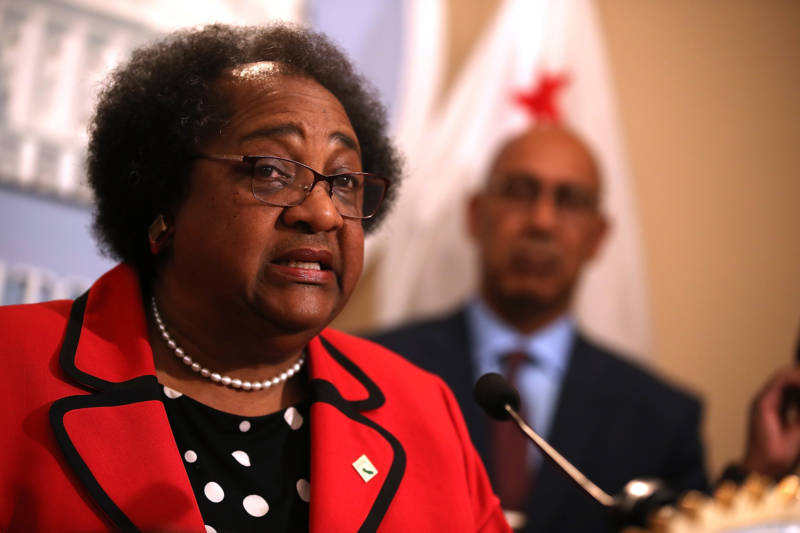Families of people shot and killed by police officers are applauding the signing of Assembly Bill 392 Monday by Governor Gavin Newsom. It aims to further restrict when officers can use deadly force.
Supporters say California’s new use of force law will be one of the toughest in the country. It states law enforcement can only use deadly force when “necessary,” rather than just “reasonable.”
Democratic Assemblywoman Shirley Weber authored the measure. She said the families of victims were passionate about strengthening the law.

